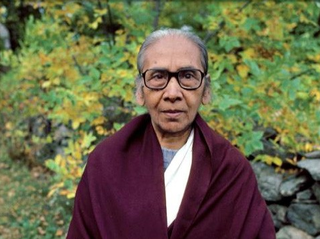A Quote by Gore Vidal
What is there to say, finally, except that pain is bad and pleasure good, life all, death nothing.
Related Quotes
You know the pain is part of the whole thing. And it isn’t that you can say afterwards the pleasure was greater than the pain and that’s why you would do it again. That has nothing to do with it. You can’t measure it, because the pain comes after and it lasts longer. So the question really is, Why doesn’t that pain make you say, I won’t do it again? When the pain is so bad that you have to say that, but you don’t.
Nothing endures except change; nothing is constant except death. Every heartbeat wounds us, and life would be an eternal bleeding to death, were it not for literature. It grants us what nature does not: a golden time that doesn't rust, a springtime that never wilts, cloudless happiness and eternal youth. [my translation]
It is important to distinguish between sense-pleasure and sense-desire. There is nothing wrong with sense-pleasure. Pleasure and pain are part of our human experience. Sense-desire, on the other hand, is the grasping at pleasure or the avoidance of pain. This is what creates suffering-grasping and avoidance.






































